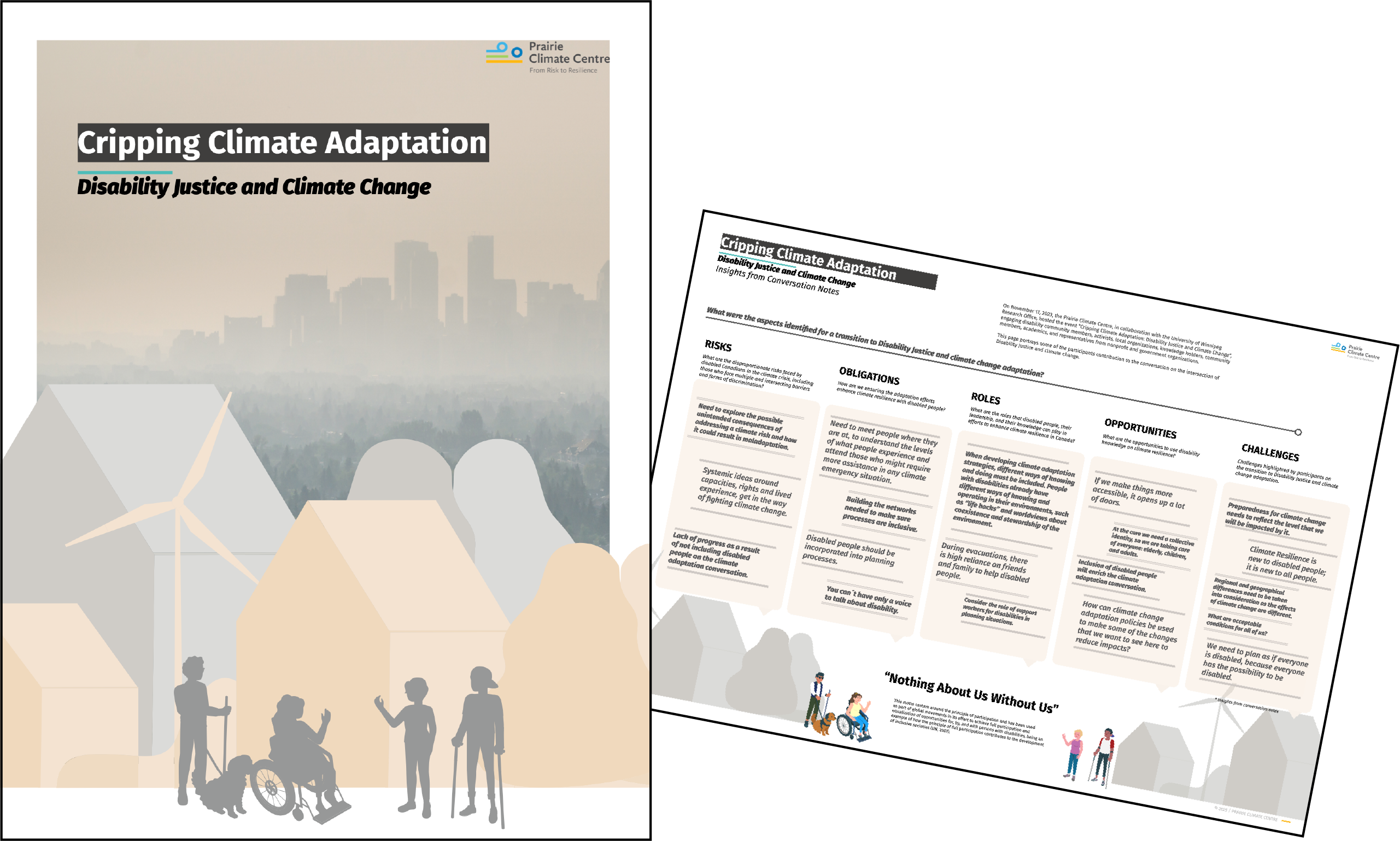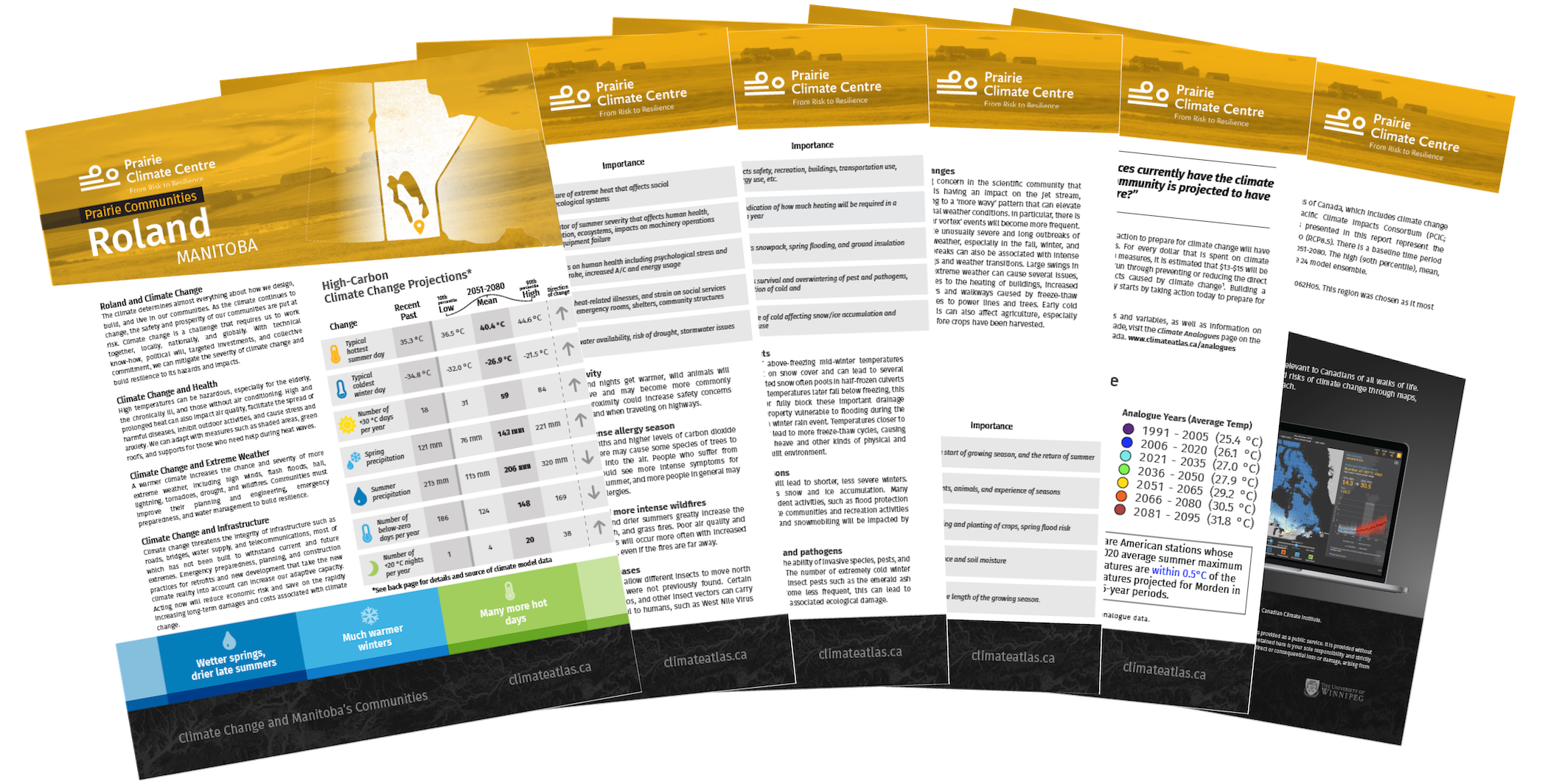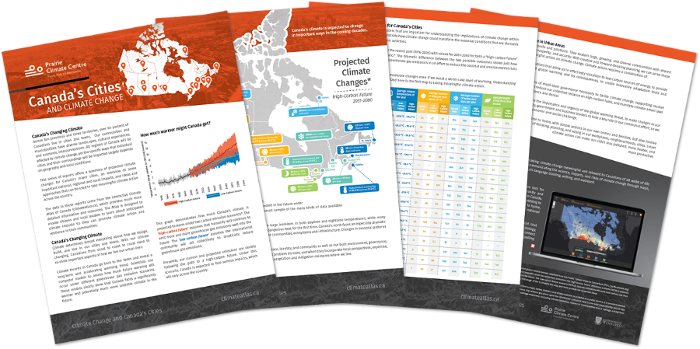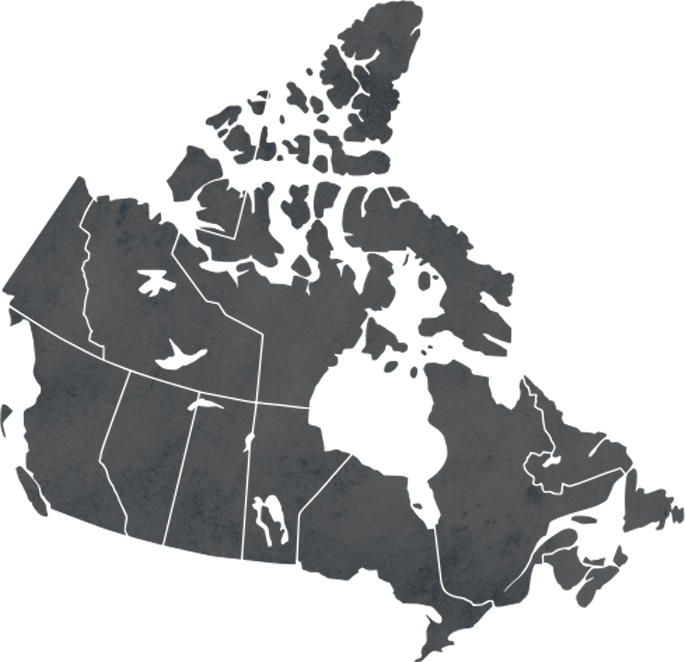
The Climate Atlas of Canada combines climate science, mapping, and storytelling together with Indigenous Knowledges and community-based research and video to inspire awareness and action.

The Climate Atlas of Canada combines climate science, mapping, and storytelling together with Indigenous Knowledges and community-based research and video to inspire awareness and action.
This new content, co-developed with our partners, shares diverse Indigenous knowledges across diverse territories from coast to coast to coast.
Because of multiple intersecting factors, people with disabilities are more vulnerable to the health effects of climate change and could be disproportionately impacted during extreme weather events. Inequalities exacerbated by climate change could be addressed and prevented, by ensuring a full and effective participation of disabled persons in climate action at all levels.
This report by the Prairie Climate Centre conveys the perspectives on Disability Justice at the intersection of climate change, as expressed by participants at the event: Cripping Climate Adaptation.

Rural municipalities and Northern Communities are experiencing the impacts of climate change and are increasingly taking steps to plan and prepare for them. Climate cards are a useful starting point when beginning the climate change adaptation planning process, providing guidance on potential hazards and climate related consequences. They summarize likely climate impacts by season and the key climate variables linked to them. Click below to explore and download climate cards for Rural Municipalities and Northern Communities in Manitoba.

Four out of five people in Canada live in urban areas, which means the vast majority of Canadians face the growing risks that climate change is bringing to our cities and towns.
In this series of city reports, we offer a summary of projected climate changes for Canada’s major cities, an overview of some important national, regional and local impacts, and ideas and approaches that can be used today to take meaningful climate action across the country.
Cities are a powerful source of resilience and resourcefulness when it comes to taking action on climate change. Learn more about what climate change means where you live.


Many Canadians welcome the arrival of hot summer days as respite from our long, cold winters.
But too much heat can be dangerous.
There’s no doubt that with climate change we’re going to see more heat waves. Even temperate coastal cities such as Vancouver are preparing for extreme heat impacts.
This report takes a look at what extreme heat means for the health of Canadians.
Download the report (PDF, 16MB)
Our interactive climate change map allows you to explore how climate change will impact your community. Choose one of the suggested climate variables or just jump into the map to get started.
New Indigenous map layers provide climate data for 634 First Nations and 53 Inuit communities from coast to coast to coast, as well as climate projects across the Métis homeland.
Look for the Indigenous icon on the left of the map to visualize these data and resources.
![]()